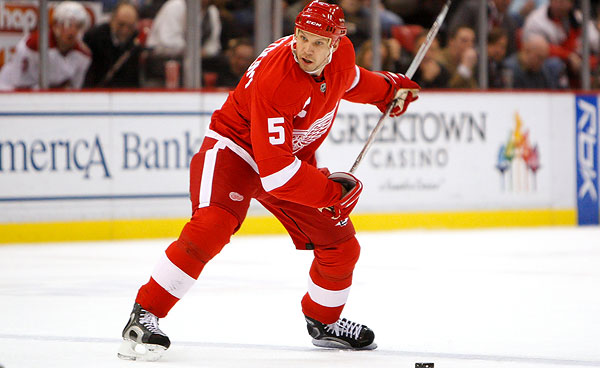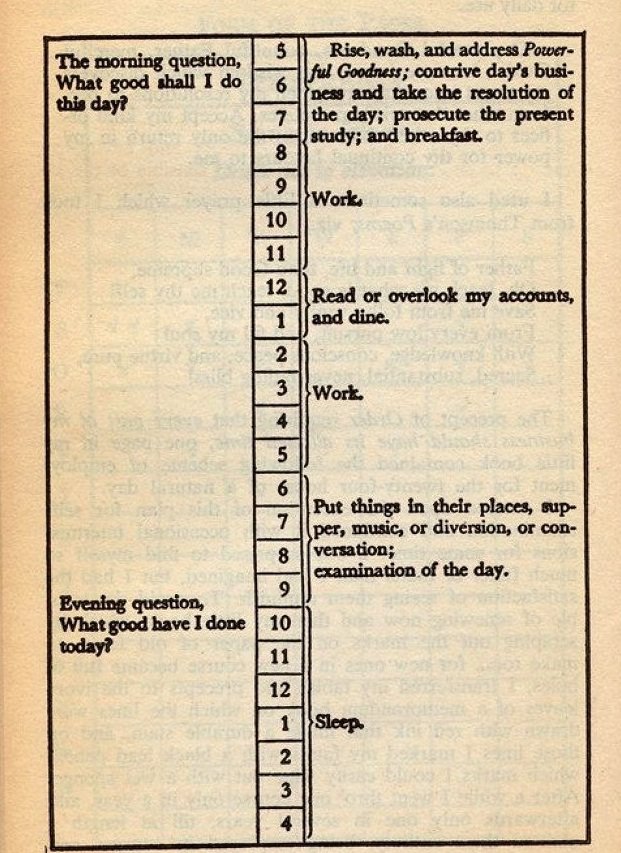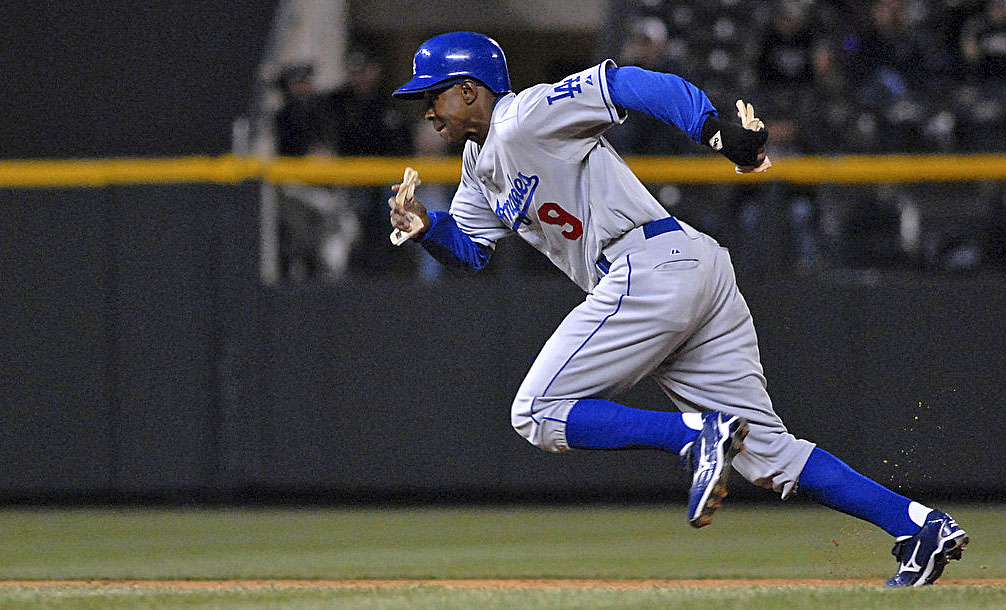
I have many guilty pleasures.
Some of which include “Huey Lewis and The News” and obscure hip-hop groups you’ve never heard of.
Another guilty pleasure of mine is watching behind-the-scenes documentaries of successful athletes to learn just exactly, uh…
…what they eat.
I wish I was joking: I have watched literally DOZENS of videos of NHL, NFL, NBA, Premier League, and MLB athletes eating. I’m so fucking curious.
What do they eat? (Pasta.) How much? (A lot.) When? (All the time.)
Maybe it’s the fitness nerd inside of me, but I love learning about the nutrition and training habits of high-performing human beings so I could imitate.
But I uncovered one food ritual I thought was so ridiculously fascinating, it inspired me to write this article. And I firmly believe, by cracking his code, we can actually become more successful in daily life.
The Routine For Success?
One of the greatest hockey players of my generation is Nicklas Lidstrom who played for the Detroit Red Wings for 20 years.
He’s won team awards like the Stanley Cup (four times) and a Gold Medal at the Olympics, and he’s also won individual awards like the Norris Trophy (seven times) and “Sports Illustrated NHL Player of the Decade.”
He’s even been called the “Perfect Human.” (Need I say more?)

TL;DR the dude is one successful motherfucker.
In an NBCSports documentary on Lidstrom, they showed a routine he followed which absolutely blew me away. Get this…
Before every home game, he eats at the same restaurant, at the same table, with the same person, and orders the same exact thing:
A Cesar salad, spaghetti half-palomino and half-meat sauce, and chicken on the side.
Then, he goes home, he takes a nap, his teammate picks him up, and they go to the same Starbucks where he orders the same tall mocha every time.
Also, once he gets to the arena, he takes an indirect route that goes under the stands to walk to the locker room.
So… let me get this straight: You are a multi-millionaire and one of the greatest athletes of ANY sport.
And yet you have borderline OCD?!
And as I dug deeper with other athletes, I kept noticing unique idiosyncrasies and rituals.
They literally do the same thing, all the time.
That’s when it dawned on me. These aren’t just quirks; these athletes literally do the same, boring thing every single day — ex. eggs for breakfast (as you’ll see below) — because it allows them to be successful in literally everything else.
Nicklas Lidstrom’s coach, Mike Babcock, even called it out in that same documentary:
Being a good pro is doing the same simple thing, over and over and over again. A lot of really good players are still bored to death with the process, and [Lidstrom has] found a way to enjoy it.
Now, allow me to translate this outside of sports:
Being a good [person] is doing the same simple thing, over and over and over again. A lot of [people] are still bored to death with the process, and [successful people have] found a way to enjoy it.
That’s why rituals and routines are so important. It’s your opportunity to cross your T’s and dot your I’s so you can (1) feel fully prepared, (2) give your undivided attention to the things you need to do, and (3) make incremental improvements daily.
After deconstructing many elite athletes, I noticed that most — if not, all of them — follow the same boring ritual and routines every damn day.
Oh, and lets remember that many notable, historical figures like Ben Franklin and Theodore Roosevelt also followed regimented schedules and activities.

So what does that mean for us?
First, it means there really isn’t a need to innovate things that don’t require innovation. For example, figuring out a new breakfast for each morning takes up a lot of time, energy, and cognition — you’d probably benefit from eating the same thing at the same time every day. (Or, in my case, eating nothing at all.)
The same goes with your fitness program (to an extent), your morning routine, your wardrobe, and your pre-bed ritual. (This, by the way, is part of the reason why I still have other people write my workouts.)
The reality is we only have a finite amount of cognition per day.
Second, it means we could benefit from embracing the “boring.” I put the word “boring” in quotes, however, because the goal — it would seem — is to figure out a way to enjoy the redundancy and monotony.
For some, eating the same food everyday would drive you to insanity. Maybe you could cycle different meals from week to week. Maybe you could eat at different places in your home. Or maybe you could do what I do and just man the fuck up — eventually, you’ll get so used to it, it would seem out of place to alter the meal. (I’ve gotten my gratitude journal and mediation practice to that point; you just suck it up for a few weeks and, pretty soon, if you miss it, you feel out of whack.)
The benefit is that those “boring” habits and rituals inch you closer towards your goal. They let you focus and express true creativity on other things because all the smaller parts of your routine are on auto-pilot.
Here’s a weird personal example: I work from coffee shops and there’s roughly 20 coffee shops I go to on a regular basis in the Denver Area. I like to switch things up and get a change of scenery so I rotate them to make sure I don’t go to a place too frequently.
Yet at each coffee shop, I have the same exact work process and I never deviate from it.
I work the same way and do the same thing. In fact, I even know that a wobbly table drives me nuts or that a poorly placed air vent dries my contact lenses so I’ll actually move around until I found the right spot or wedge some paper napkins under a table leg.
It helps me do optimal work without thinking about all that other shit, even when remote working abroad.

Going back to a sports example, when I was a kid, I loved going to Dodger Stadium early before a game and see players take BP (batting practice). From my high school to college years, the Dodgers had a player named, Juan Pierre, who I admired because he was a throwback player who mimicked Jackie Robinson and had an incredible work ethic.
I noticed he was ALWAYS the first one out on the field stretching and warming up and the last one to come in. His routine was probably long and boring as fuck — but he did it EVERY DAY FOR A DECADE. (Now that’s boring.)
Yet it’s probably a huge reason why he PLAYED ALL 162 GAMES EACH SEASON. In fact, the only reason he missed games was when he broke his leg and, even then, he recovered weeks earlier than predicted and ended up batting like .330 the rest of the season.

Something tells me that his “boring” routine helped.
There is, however, a huge difference between a “rut” and “routine.”
A “rut” is, like, going to the same watering hole every Friday evening, sitting in the same table, and commiserating with your friends and colleagues about how much you all hate your job again.
A “routine,” however, is arrangement of habits you perform to improve yourself and/or help you feel ready to give 100% each and every day.
Some routines can be a little boring, but I remind myself that they (1) gradually make me better or (2) allow me to focus on more important things.
And other people might tell me my rituals are boring, but I could care less.
I cannot overstate this enough: sometimes people might take shots at your routine (or having such a strict one). Yet to them, your routine represents a backhanded insult to them — because they lack the disciple necessary to create one.

What do you think Nick Lidstrom would do if someone laughed at him for his habit when he was a player? He’d probably smile and go back to the same restaurant, sit at the same table, and order the same thing.
And feel ready for his game.
Take inventory of those boring rituals you currently have and think about the habits you gave up because they were boring.
Hopefully, this article will help transform the way you look at them so you can unlock all those benefits.
Sometimes I wonder what things success athletes do as a result of ‘OCD’/ritual that don’t actually make them a better player and yet still succeed because of an insane amount of God given talent….. I mean we see it all the time in youth athletics, some super bullshit training and yet that kid is amazing at his/her sport…
Interesting topic worth fleshing out more. Cheers.
Great point, Ryan. There are many athletes who seem to succeed in spite of their BS routines and training programs.
I wonder about that too, but sometimes, I wonder if that’s the rule or the exception. There are athletes whom their shitty routines/training/lifestyles catch up to them. Or, vice versa, baseball players in the 70’s were on LSD and coke and did just fine.
Here’s where I think things can start changing: It’s 2017 and many elite athletes are on some super high quality training/nutrition bent. If you aren’t doing it, someone else is. And if someone else is, you’re falling behind. I think of a guy like Cristiano Ronaldo who has someone coach him on sleeping!! Someone else is making those 1% incremental gains. Some gifted athletes could succeed without it, but it’ll be one massive game of “catch up.”
Mental game is another aspect. Some people just have it and know how to turn it on when they need. Tom Brady? Gretzky?
I totally agree with this one, Anthony.
Highly successful people are doing their boring stuff everyday. I do notice that some are even wearing the same shirt (Mike Zuckeberg, Obama, etc). Beating decision fatigue, they said..
I am trying to do the same too. I only wear white shirt to my work (yet I still have several types of white shirt to choose). I do have a before sleep ritual and morning ritual. I would like to automate some more..
Great post!
Thank you for your comment, Sandro! Great job at doing the boring stuff extremely well! 🙂
Hey man, I just started reading your blog last night and needless to say, I’m hooked. Many of your posts reasonated with me, I’m in love with your writing voice and, cough, maybe a little with you as well. I feel like you actually wrote a “guide to adulting” kinda thing. It is amazing.
So I noticed the last post was from quite some time ago? Are you still writing and may I know where? Thanks. In the meantime I’m going to finish reading this whole blog.